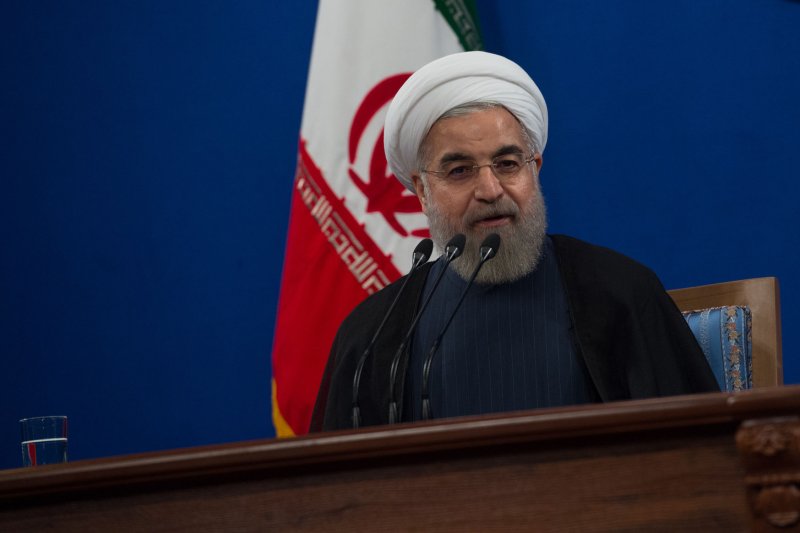Iran's President Hassan Rouhani says his country can sell as much crude oil as it deems fit. File photo by Ali Mohammadi/UPI |
License Photo
TEHRAN, Dec. 6 (UPI) -- Iran can sell as much crude oil as it wants to thanks in part to a multilateral nuclear agreement that eased crippling sanctions, the country's president said.
Iran has been opening its economic doors to potential investors after so-called Implementation Day, when the country was verified as meeting the terms of a U.N.-backed nuclear agreement, passed in January. The Central Bank of Iran said it could work with European partners after bank restrictions were lifted. Oilfield services company Schlumberger, which has its main offices in the United States, recently signed a memorandum of understanding with an Iranian oil company for data-sharing.
Early 2016 analysis from the U.S. Energy Information Administration found sanctions relief could lead to an increase in Iranian crude oil production and exports. Holding steady at around 2.8 million barrels per day under sanctions, Iran's output could increase about 10 percent for the year, the report said.
Iranian President Hassan Rouhani said there were few limits standing in the way of the country's oil performance.
"The Islamic Republic of Iran is now able to sell as much crude oil and to any country it deems appropriate," he was quoted by the Oil Ministry's news website SHANA as saying
Iran is the only member of the Organization of Petroleum Exporting Countries not obligated to cut oil production under the terms of a member-state agreement reached last week in Vienna. Saudi Arabia, one of Iran's main adversaries, cuts the most by volume with 486,000 bpd starting in January.
Iran agreed to hold output at 3.79 million barrels per day, about 100,000 bpd less than reported to OPEC for October.
OPEC and non-member states meet again during the weekend in Vienna to discuss coordinating around last month's production agreement. Non-member states would have to trim output for full implementation of the arrangement. OPEC expects non-member states to account for about half of the agreed upon cuts.
Iran in the past has expressed reservations about cooperating with any production cap proposals, saying it needed to regain a market share lost to sanctions.















